Adler, S. M. (2011). Teacher epistemology and collective narratives: Interrogating teaching and diversity. TEACHING AND TEACHER EDUCATION, 27(3), 609-618.
ALLAN, J. (2011). Responsibly competent: Teaching, ethics and diversity. Policy Futures in Education, 9(1), 130-137.
Allen, J. D., & Porter, O. F. (2002). Teaching about diversity issues. Kappa Delta Pi Record, 38(3), 128-33.
Avery, D. R., King, E. B., & Gulick, L. M. V. (2010). The divide between diversity training and diversity education: Integrating best practices. Journal of Management Education, 34(6), 891-906.
Bailey, W. J., LaFasto, F., Henry, G. S., & Kelly, D. (1992). Diversity: INTRODUCTION: DIVERSITY, AN OLD ISSUE WITH A NEW FACE. Human Resource Management (1986-1998), 31(1-2), 21.
Bamberg, R., Pitts, B. B., & Maloney, E. M. (2002). Curriculum resources for cultural diversity education. Journal of Allied Health [NLM – MEDLINE], 31(2), 117.
Benincasa, L. (2002). Teaching preschoolers about diversity: A view from greece. Journal of Education for Teaching, 28(2), 103-22.
Bierema, L. L. (2010). Diversity education: Competencies and strategies for educators. Advances in Developing Human Resources, 12(3), 312-331.
Bierema, L. L. (2010). Resisting HRD’s resistance to diversity. Journal of European Industrial Training, 34(6), 565-576.
Black, T., & Rangarajan, N. (2007). Exploring organizational barriers to diversity: A case study of the new york state education department. Review of Public Personnel Administration, 27(3), 249-263.
Border, L. L. B. (1999). Taking diversity seriously: New developments in teaching for diversity. New Directions for Teaching and Learning, 1999(80), 83-89.
Boris, E. R., Masako, R. O., & Christopher, M. W. (2011). 2011 APSA teaching and learning conference track summaries: Track: Diversity, inclusiveness, and equality. PS, Political Science & Politics, 44(3), 657.
Boysen, G. A. (2011). Diversity topics covered in teaching of psychology courses. TEACHING OF PSYCHOLOGY, 38(2), 89-93.
Castro, A. J. (2010). Themes in the research on preservice teachers’ views of cultural diversity: Implications for researching millennial preservice teachers. Educational Researcher, 39(3), 198-210.
Chang, J. (2006). A transcultural wisdom bank in the classroom: Making cultural diversity a key resource in teaching and learning. Journal of Studies in International Education, 10(4), 369-377.
Cook, A., & Callister, R. R. (2010). Increasing positive perceptions of diversity for religious conservative students. Creative Education, 1(2), 93-100.
Cross, M. (2004). Institutionalising campus diversity in south african higher education: Review of diversity scholarship and diversity education. Higher Education, 47(4), 387-410.
D, L. N. (2006). Linguistic diversity and teaching
Daniel, F. (2011). Diversity as technology: A new perspective. Journal of Diversity Management, 6(2), 31.
Dawson, B. L., Thomas, K. M., & Ny, M. T. (2010). An inclusive strategy of teaching diversity. Advances in Developing Human Resources, 12(3), 295-311.
Deakins, E. (2009). Helping students value cultural diversity through research-based teaching. HIGHER EDUCATION RESEARCH & DEVELOPMENT, 28(2), 209-226.
Denson, N., & Chang, M. J. (2009). Racial diversity matters: The impact of diversity-related student engagement and institutional context. American Educational Research Journal, 46(2), 322-353.
Dogra, N., & Carter-Pokras, O. (2005). Stakeholder views regarding cultural diversity teaching outcomes: A qualitative study. BMC Medical Education, 5(1), 37-37.
Dogra, N., Conning, S., Gill, P., Spencer, J., & Turner, M. (2005). Teaching of cultural diversity in medical schools in the united kingdom and republic of ireland: Cross sectional questionnaire survey. BMJ (Clinical Research Ed.), 330(7488), 403-404.
Dogra, N., & Karnik, N. (2004). Teaching cultural diversity to medical students. Medical Teacher, 26(8), 677-677.
Dogra, N., Reitmanova, S., & Carter-Pokras, O. (2010). Teaching cultural diversity: Current status in U.K., U.S., and canadian medical schools. Journal of General Internal Medicine, 25 Suppl 2, 8-168.
Dora Pulido-Tobiassen, & Janet Gonzalez-Mena. (1999). Teaching diversity: A place to begin. Scholastic Early Childhood Today, 14(3), 44.
Durska, M. (2009). Diversity management: Key concepts. Kobieta i Biznes, (1-4), 36.
Elhoweris, H., Whittaker, C. R., & Salend, S. (2009). Religious diversity in schools: Addressing the issues. Intervention in School and Clinic, 44(5), 314-319.
Gasker, J., & LaBarre, H. A. C. (2010). The elephant in the room: Understanding barriers to students’ articulation of diversity. Creative Education, 1(2), 69-74.
Glick, B. J., & Day, N. E. (2000). Teaching diversity: A study of organizational needs and diversity curriculum in higher education. Journal of Management Education, 24(3), 338-352.
Green, C., & Sandra, B. O. (2005). Teaching religious diversity through children’s literature. Childhood Education, 81(4), 209.
Hughes, P., & MacNaughton, G. (2007). Teaching respect for cultural diversity in australian early childhood programs: A challenge for professional learning. Journal of Early Childhood Research, 5(2), 189-204.
Hume, E. (2001). Teaching about diversity
Hunter O’Hara. (2006). Diversity education teacher preparation. Multicultural Education, 14(1), 39.
Infusing tolerance, diversity, and social personal curriculum into inclusive social studies classes using family portraits and contextual teaching and learning. (2005). Teaching Exceptional Children, 37(4), 59.
James, D. A., & Olivia, F. P. (2002). Teaching about diversity issues. Kappa Delta Pi Record, 38(3), 128.
John, J. B. (2003). Rewards of teaching diversity. Multicultural Education, 10(3), 31.
Johnson, L. (2002). Art-centered approach to diversity education in teaching and learning. Multicultural Education, 9(4), 18-21.
Johnson, S. A., & Romanello, M. L. (2005). Generational diversity: Teaching and learning approaches. Nurse Educator, 30(5), 212.
Jones, H. (2004). A research-based approach on teaching to diversity. Journal of Instructional Psychology, 31(1), 12-19.
Karl, A. S., & Toni, A. H. M. (2000). Diversity. Journal of Engineering Education, 89(3), 257.
Kubal, T., Stone, R. T., Meyler, D., & Mauney, T. T. (2003). Teaching diversity and learning outcomes: Bringing lived experience into the classroom. TEACHING SOCIOLOGY, 31(4), 441-455.
Lee, J., Kane, J., Drane, D., & Kane, R. (2009). Seeing is believing: Using film for teaching issues of diversity in sport. JOURNAL OF HOSPITALITY LEISURE SPORT & TOURISM EDUCATION, 8(1), 97-107.
Limburg, F., & Clark, C. (2006). Diversity initiatives in higher education: Teaching multicultural education online. Multicultural Education, 13(3), 49.
Lumby, J., Sood, K., & Morrison, M. (2006). Diversity and diversity management: Messages from recent research. Educational Management Administration & Leadership, 34(3), 277-295.
Lynn, M. (1998). Teaching through diversity. College Teaching, 46(4), 123-127.
Lynn, M. (1998). Teaching through diversity. College Teaching, 46(4), 123-27.
M, T. B., Rebecca, J. O., & Condon, D. (2010). Diversity management: Seeking validation. Journal of Diversity Management, 5(1), 23.
Mack, K. (2000). Teaching evidence: Inference, proof and diversity. Legal Education Review, 11(1), 57.
Marbley, A., Burley, H., Bonner,Fred A.,,II, & Ross, W. (2010). Teaching diversity across disciplines: Reflections from african-american faculty in four different academic settings. Educational Forum, 74(1), 63-80.
Marks, A. R. (2005). Desperately seeking diversity. The Journal of Clinical Investigation, 115(3), 480-480.
McDonald, K. S., & Hite, L. M. (2010). Diversity in the HRD curriculum: Concluding thoughts and next steps. Advances in Developing Human Resources, 12(3), 385-391.
McDonald, K. S., & Hite, L. M. (2010). Perspectives on HRD and diversity education. Advances in Developing Human Resources, 12(3), 283-294.
Milner, H. R. (2010). What does teacher education have to do with teaching? implications for diversity studies. Journal of Teacher Education, 61(1-2), 118-131.
Mitry, D. J. (2008). Using cultural diversity in teaching economics: Global business implications. Journal of Education for Business, 84(2), 84-89.
Nancy, T. N., Sharon, L. Y., Chanel, F. A., & Assemi, M. (2009). Fostering and managing diversity in schools of pharmacy. American Journal of Pharmaceutical Education, 73(8), 1.
Nelson Laird, T.,F. (2011). Measuring the diversity inclusivity of college courses. Research in Higher Education, 52(6), 572-588.
Northedge, A. (2003). Rethinking teaching in the context of diversity. Teaching in Higher Education, 8(1), 17-32.
Ofori-Dankwa, J., & Lane, R. W. (2000). Four approaches to cultural diversity: Implications for teaching at institutions of higher education. Teaching in Higher Education, 5(4), 493-99.
Pass, S. (2009). Teaching respect for diversity: The oglala lakota. Social Studies, 100(5), 212-217.
R, F. L. (2011). Raising the bar on diversity. Diverse Issues in Higher Education, 28(11), 23.
Robert, D. W. (2002). Teaching tolerance. Teacher Librarian, 30(2), 53.
Rod Parker-Rees. (1997). Back to good teaching: Diversity within tradition
Roeck, K. T. (2009). Embracing diversity. Journal of LGBT Youth, 6(1), 1-6.
Salma, I. G. (1999). Teaching about culture, ethnicity & diversity
Sharma, S. (2006). Teaching diversity–Im/Possible pedagogy. Policy Futures in Education, 4(2), 203-216.
Sheets, R. H. (2009). What is diversity pedagogy? Multicultural Education, 16(3), 11-17.
Sheila Littlejohn-Blake. (2004). Celebrate diversity. Childhood Education, 80(3), 146D.
Skerrett, A. (2009). Biographical orientations to secondary english teaching within a mosaic context of diversity. English Education, 41(3), 281-303.
Smolen, L. A., Colville-Hall, S., Liang, X., & Donald, S. M. (2006). An empirical study of college of education Faculty’s perceptions, beliefs, and commitment to the teaching of diversity in teacher education programs at four urban universities. The Urban Review, 38(1), 45-61.
Sobel, D. M., Taylor, S. V., & Anderson, R. E. (2003). Shared accountability: Encouraging diversity-responsive teaching in inclusive contexts. TEACHING Exceptional Children, 35(6), 46-54.
Stewart, M. M., Crary, M., & Humberd, B. K. (2008). Teaching value in diversity: On the folly of espousing inclusion, while practicing exclusion. ACADEMY OF MANAGEMENT LEARNING & EDUCATION, 7(3), 374-386.
Suyemoto, K. L., & Kiang, P. N. (2003). Diversity research as service learning. Academic Exchange Quarterly, 7(2), 71-75.
Tatar, M., & Horenczyk, G. (2003). Diversity-related burnout among teachers. Teaching and Teacher Education, 19(4), 397-408.
Teaching diversity. (1991). Teaching Education, 4(1), 2-13.
Tummala-Narra, P. (2009). TEACHING ON DIVERSITY: The mutual influence of students and instructors. Psychoanalytic Psychology, 26(3), 322-334.
Williams, R., & Dogra, N. (2006). Applying policy and evidence in developing cultural diversity teaching in undergraduate medical education in the UK. Evidence & Policy: A Journal of Research, Debate and Practice, 2(4), 463-463.
Xu, S. H. (2001). Exploring diversity issues in teacher education. Reading Online, 5(1)
Young, M. A., Madsen, J., & Young, B. L. (2010). Implementing diversity plans: Principals’ perception of their ability to address diversity in their schools. NASSP Bulletin, 94(2), 135-157.

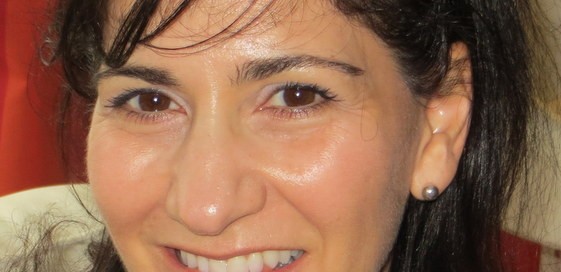
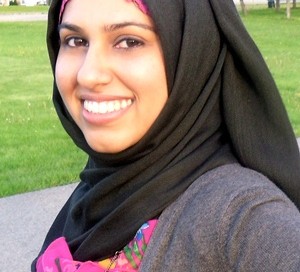
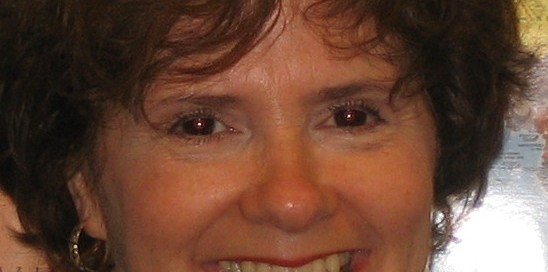
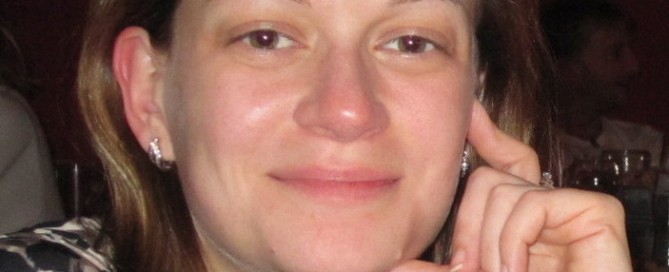
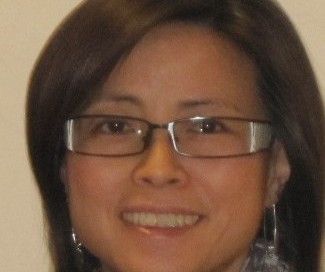
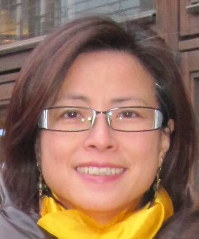
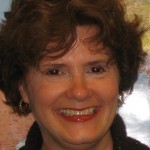




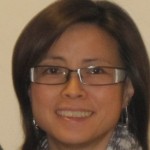
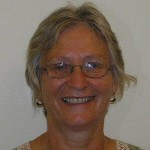

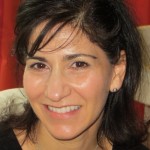
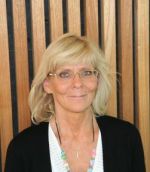
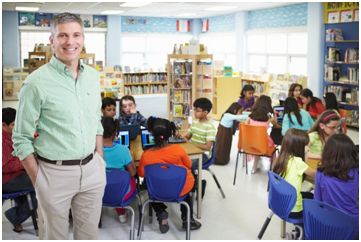


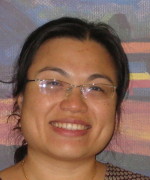




Connect with us
Facebook
Twitter
Blogger
Youtube